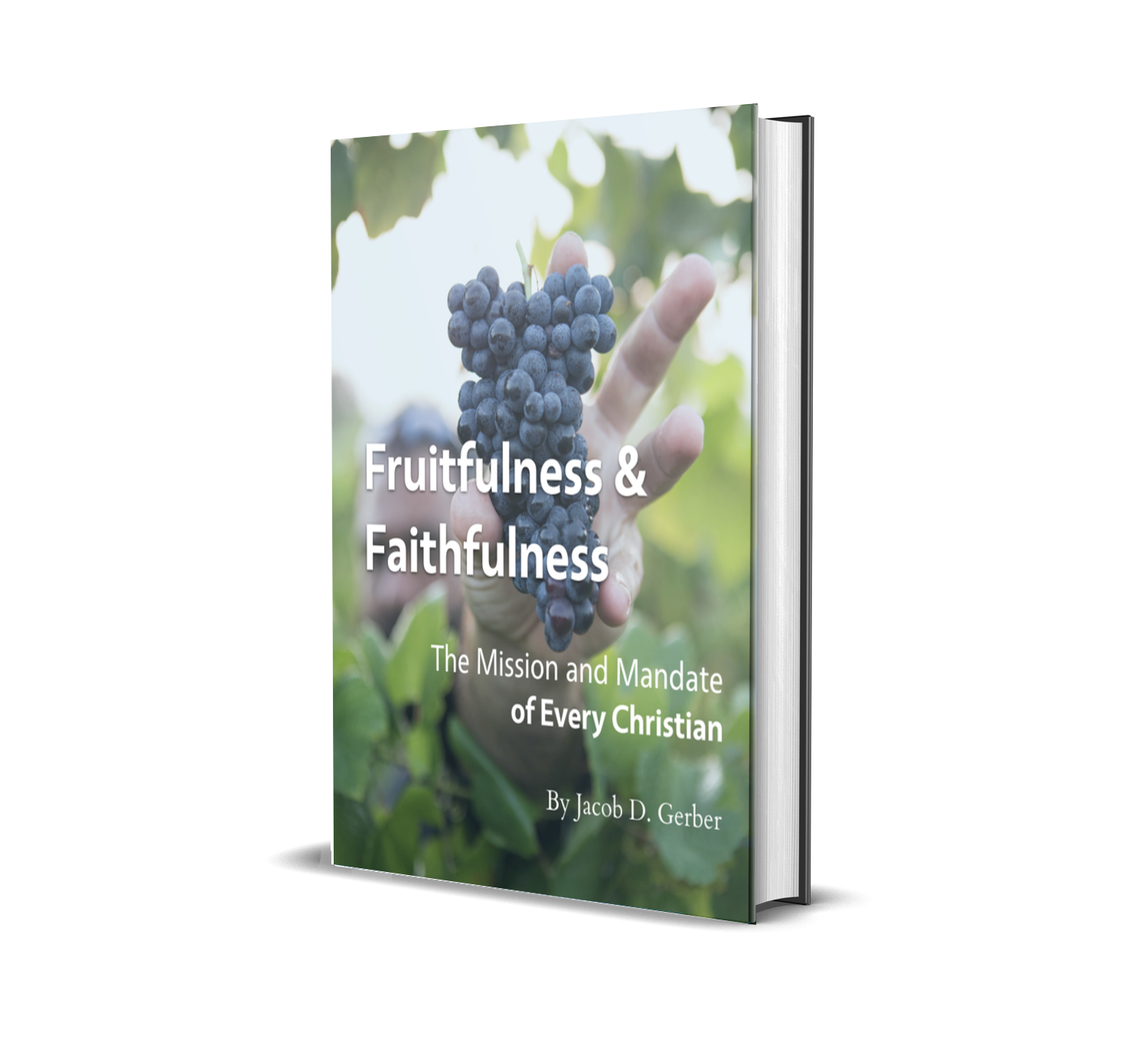True Pastors are Fathers, Teachers, and Rulers (1 Corinthians 4:14–21)
1 Corinthians 4 is an extraordinary chapter to clarify the true nature of pastoral ministry. Paul opens the chapter by explaining that pastors are merely servants of Christ and stewards of the mysteries of God (1 Cor. 4:1).
Then, he closes the chapter with three new pictures of pastors: fathers, teachers, and rulers. Each of these metaphors for ministers brings out a unique facet of the relationship that God has appointed between pastors and those whom they lead.
True Pastors are Compassionate Fathers (1 Cor. 4:14–15)
To begin, Paul insists that pastors are fathers toward their congregations. Elsewhere, Paul speaks about pastoral ministry in terms of a nursing mother (1 Thess. 2:7), but here Paul brings out two fatherly elements of his ministry.
Admonishing, not Shaming
First, Paul explains that he has not sought to heap shame upon the Corinthians, but to admonish them as his “beloved children” (1 Cor. 4:14). Positively, that means true pastors must appeal to their people with dignity, respect, and deep affection.
Negatively, that means that pastors must renounce “disgraceful, underhanded ways” and refuse “to practice cunning or to tamper with God’s word, but by open statement of the truth we would commend ourselves to everyone’s conscience in the sight of God” (2 Cor. 4:2). Fathers do not seek to tear down their children, but to build them up.
Not a Slave-Guardian
Second, Paul contrasts his own, fatherly ministry toward the Corinthians against the tutoring they have received by their “countless guides” (1 Cor. 4:15). These “guides” were typically slaves of the household who were given charge over the education of the sons of the household. Thus, Lenski translates the word for “guides” as “slave guardians,” which captures the pejorative sense Paul intends (Lenski, Interpretation of First Corinthians, 193–94).
Paul’s point is that slave guardians don’t care as deeply about the good of the children entrusted to them as fathers would (cf. Gal. 3:23–4:7). Paul personally led the Corinthians to faith (1 Cor. 4:15), and he therefore feels an obligation to ensure that they continue to follow after Christ.
That is, true pastors feel internal obligations toward their people, like fathers, not merely external obligations that a slave-guardian would feel as they simply obeying orders.
Call No Man Your Father
How, though, should we square Paul’s words here with Jesus’ prohibition against calling any man our father on earth (Matt. 23:9)? Importantly, we should recognize that Jesus was instructing us not to give blind, unthinking obedience to human leaders.
The burden of Paul’s point, however, runs in exactly the opposite direction from what Jesus warned against. Paul is not placing a burden upon the Corinthians for how they should relate to him. Rather, Paul is describing the burden that he feels about how he should relate to them.
True pastors admonish out of a father’s affectionate angst; they do not demand undue devotion. Indeed, Jesus goes on in that same passage to say, “The greatest among you shall be your servant” (Matt. 23:11).
True pastors are fathers to their congregations as servants, not masters.
True Pastors are Consistent Teachers (1 Cor. 4:16–17)
Next, Paul explains that pastors are teachers. This may seem obvious in Presbyterian traditions where pastors are ordained as “Teaching Elders”; however, Paul’s words clarify the precise nature of this teaching ministry.
A Life Devoted to Preaching and Teaching
The teaching ministry Paul envisions for pastors, then, assumes that pastors will teach with words. Paul says that he has taught the ways of Christ deliberately, thoroughly, and consistently “everywhere in every church” (1 Cor. 4:17).
True pastors labor in preaching and teaching (1 Tim. 5:17) as they fulfill their responsibility as stewards by dispensing the mysteries of God to the household of God (1 Cor. 4:1).
This kind of life, poured out in preaching and teaching God’s word, is the bare minimum requirement for pastors.
Be Imitators of Me
And yet, Paul models more. Paul demonstrates that true pastors must go beyond mere words to provide an example to the flock (cf. 1 Pet. 5:3). True pastors are not ivory tower lecturers, blind to the real thoughts, feelings, and needs of their congregations.
Rather, Paul urges the Corinthians to imitate him (1 Cor. 4:16). Only a man who has lived out his life in the sight of these people would be able to make this audacious request.
And, lest we think that Paul is making too much of himself, we should see that he is urging them to follow his ways “in Christ” (1 Cor. 4:17). Later, Paul will become even more specific: “Be imitators of me, as I am of Christ” (1 Cor. 11:1).
True pastors teach the doctrine of Christ by word and by their example.
True Pastors are Committed Rulers (1 Cor. 4:18–21)
While a slave-guardian might not care if a child wandered from his education, a father cares deeply. Where a slave-guardian might not go to great lengths to bring the wayward child back, a father will stop at nothing.
A slave-guardian is only a hired hand who scatters at the first sign of danger or hardship, while a father recognizes that he must do whatever it takes to reclaim his beloved children—even if it means laying down his life for them (cf. John 10:11–15).
So, when the Corinthians become arrogant, Paul acknowledges that he must do the hard work of discipline to bring them back.
The Kingdom of God Consists in Power
First, Paul exposes the powerless “talk” of those in Corinth who are arrogant, writing, “For the kingdom of God does not consist in talk but in power” (1 Cor. 4:20). Paul has already defined power as the gospel of Christ and him crucified, as demonstrated by the Holy Spirit (1 Cor. 1:18, 24; 2:4, 5).
This gospel, Paul explains, is the kingdom of God. Wherever people believe upon the scandalous, foolish gospel of Jesus Christ and him crucified through weak, fearful, trembling preaching, there the kingdom of God has come in the power of the Holy Spirit.
The Kingdom of God Comes with a Rod
Second, Paul demonstrates the seriousness of his earlier words. He wrote to admonish them (1 Cor. 4:14), but he will not stop with words. If necessary, he will come with a “rod”: “What do you wish? Shall I come to you with a rod, or with love in a spirit of gentleness?” (1 Cor. 4:21). Paul does not want to come with a rod, but he is prepared to do so if necessary.
Spare the Rod, Spoil the Child
What, though, does Paul mean by a rod? In the context of a father’s relationship to his children, the Proverbs speak of the use of a rod in discipline and chastisement:
[13] Do not withhold discipline from a child; if you strike him with a rod, he will not die. [14] If you strike him with the rod, you will save his soul from Sheol. (Prov. 23:13–14)
Elsewhere, the Lord promised that he would be as a father to David’s sons. As a father, the Lord promised to discipline David’s wayward sons with “the rod of men” (2 Sam. 7:14; Ps. 89:32).
The Rod of Iron, the Scepter of Christ’s Kingdom
But, in the context of a kingdom, the word for “rod” is often translated as “scepter”:
[8] But of the Son he says, “Your throne, O God, is forever and ever, the scepter of uprightness is the scepter of your kingdom. (Heb. 1:8; quoting Ps. 45:6)
The scepter of Christ’s kingdom is a “rod” of iron by which he will rule the nations and crush his enemies (Rev. 2:27; 19:11–15). This scepter symbolizes the power, rule, authority, and government of Christ’s reign as king.
Remarkably, Christ entrusts his rod of iron to his church (Rev. 2:26–27). Specifically, he entrusts his scepter to the elders of his church who administer the rule of Christ’s reign (1 Tim. 5:17).
Partially, pastors administer the rule of Christ’s reign through declaring Christ’s word as teaching elders: the Key of Doctrine. partially, pastors and ruling elders jointly administer the rule of Christ’s reign through ministering Christ’s word: the Key of Discipline.
Christ, therefore, governs his church through his elders, to whom he entrusts the Keys of his Kingdom—the Keys of Doctrine and of Discipline. These two Keys of the Kingdom are the rod by which our Good Shepherd shepherds his people (Ps. 23:4).
If possible, true pastors seek to admonish the sheep by the Key of Doctrine. But, if necessary, true pastors are committed to reclaiming the sheep for Christ by the rod, the Key of Discipline.
Robert Murray M’Cheyne on Doctrine and Discipline
To reinforce this point, consider the words of 19th-century Presbyterian Pastor Robert Murray M’Cheyne (the author of the M’Cheyne Bible Reading Plan) that I came across recently:
When I first entered upon the work of the ministry among you, I was exceedingly ignorant of the vast importance of church discipline. I thought that my great and almost only work was to pray and preach. I saw your souls to be so precious, and the time so short, that I devoted all my time, and care, and strength, to labour in word and doctrine. When cases of discipline were brought before me and the elders, I regarded them with something like abhorrence. It was a duty I shrank from; and I may truly say it nearly drove me from the work of the ministry among you altogether. But it pleased God, who teaches his servants in another way than man teaches, to bless some of the cases of discipline to the manifest and undeniable conversion of the souls of those under our care; and from that hour a new light broke in upon my mind, and I saw that if preaching be an ordinance of Christ, so is church discipline. I now feel very deeply persuaded that both are of God–that two keys are committed to us by Christ, the one the key of doctrine, by means of which we unlock the treasures of the Bible, the other the key of discipline, by which we open or shut the way to the sealing ordinances of the faith. Both are Christ’s gift, and neither is to be resigned without sin. (Robert Murray M’Cheyne, The Life and Remains, Letters, Lectures, and Poems of the Rev. Robert Murray McCheyne, ed. Andrew A. Bonar (New York: Robert Carter & Brothers, 1856), 68.)
True pastors are committed, fatherly rulers of Christ’s sheep.
FREE eBook: Fruitfulness and Faithfulness: God’s Mission and Mandate of Every Christian
Grow in God’s Plan for Your Fruitfulness and Faithfulness

Invest Your Life Well
Discover God’s breathtaking vision for the fruitfulness of his people.
Learn how to live fruitfully and faithfully in the kingdom of Jesus.
Download the free eBook now.
Get the eBook
Bonus: You’ll also get a discipleship assessment tool to evaluate areas for you to grow in fruitfulness and faithfulness.




